Find Help
More Items From Ergsy search
-

What is Parkinson's disease?
Relevance: 100%
-

Parkinson's disease: Karen's story | NHS
Relevance: 91%
-

Parkinson’s Disease and NHS RightCare: Long Term Condition Scenario
Relevance: 82%
-
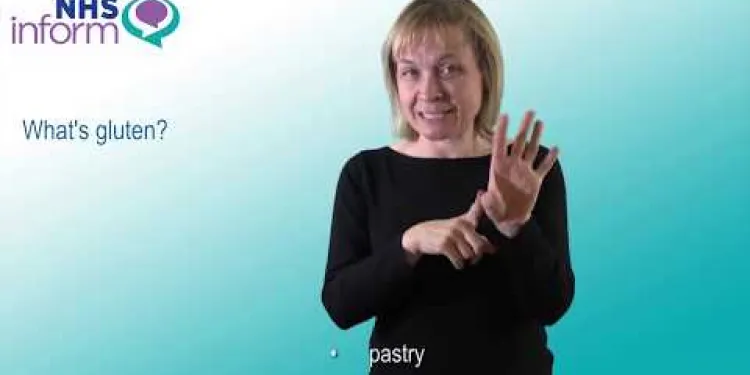
Coeliac disease
Relevance: 29%
-

Coeliac Disease: Session 1: What is Coeliac Disease?
Relevance: 29%
-

How does Huntington's disease affect movement?
Relevance: 28%
-

What is Lyme Disease?
Relevance: 28%
-
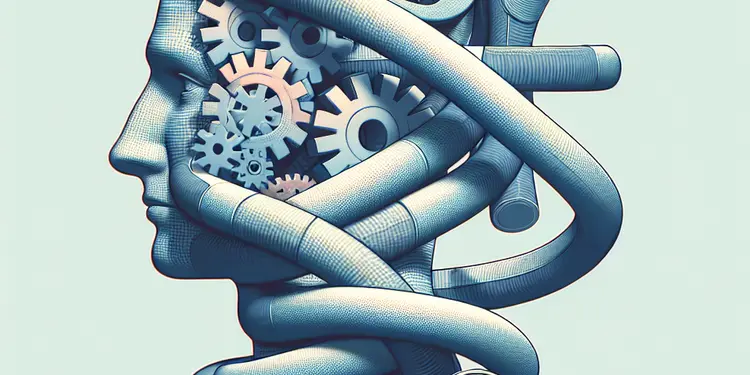
Is Huntington's disease fatal?
Relevance: 28%
-

Liver disease | NHS
Relevance: 28%
-

Is Crohn's disease contagious?
Relevance: 28%
-
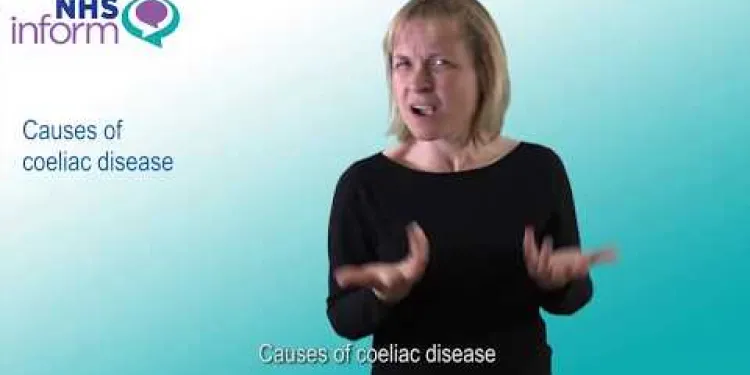
Causes of coeliac disease
Relevance: 28%
-

What is Huntington's disease?
Relevance: 28%
-

Lyme disease: What is it?
Relevance: 28%
-

Is there a cure for Crohn's disease?
Relevance: 28%
-

What is Mitochondrial disease?
Relevance: 28%
-

Is there a vaccine for Lyme disease?
Relevance: 28%
-

Is flesh-eating disease contagious?
Relevance: 27%
-
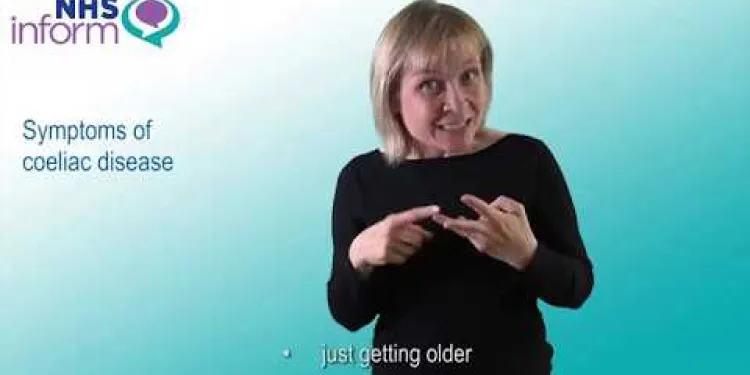
Symptoms of coeliac disease
Relevance: 27%
-

Do UK mosquitoes carry diseases?
Relevance: 27%
-

What is Alzheimer's disease?
Relevance: 27%
-

Do spiders in the UK carry diseases?
Relevance: 27%
-

What causes Crohn's disease?
Relevance: 27%
-

What causes Huntington's disease?
Relevance: 26%
-

How is Crohn's disease diagnosed?
Relevance: 26%
-

Can Lyme disease be treated?
Relevance: 26%
-

How is Lyme disease transmitted?
Relevance: 26%
-
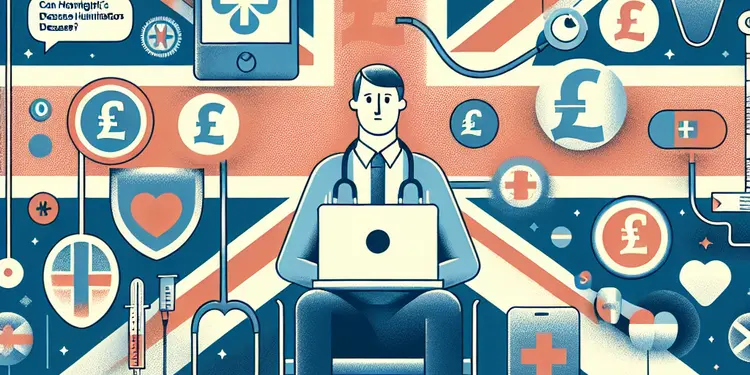
Can Huntington's disease be prevented?
Relevance: 26%
-

NHSGGC - What is Coeliac Disease?
Relevance: 26%
-

What is sickle cell disease?
Relevance: 26%
-

What is a flesh-eating disease?
Relevance: 26%
-

What are the symptoms of Huntington's disease?
Relevance: 26%
-

How is Huntington's disease diagnosed?
Relevance: 26%
-

Can Huntington's disease be cured?
Relevance: 26%
-

How common is Alzheimer's disease in the UK?
Relevance: 26%
-

Introduction to Sickle cell disease
Relevance: 26%
-
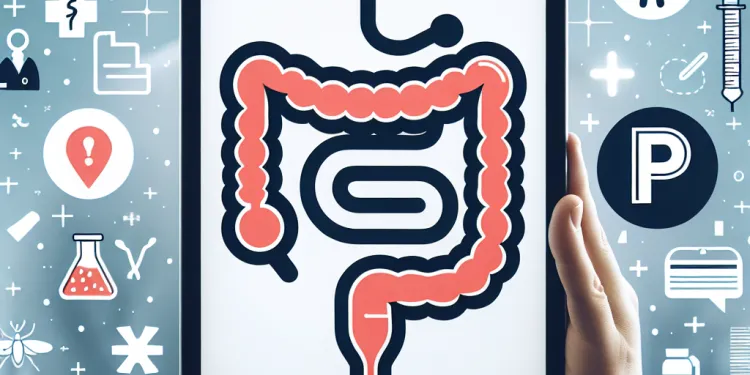
Is surgery necessary for Crohn's disease?
Relevance: 26%
-

What is a flesh eating disease?
Relevance: 26%
-
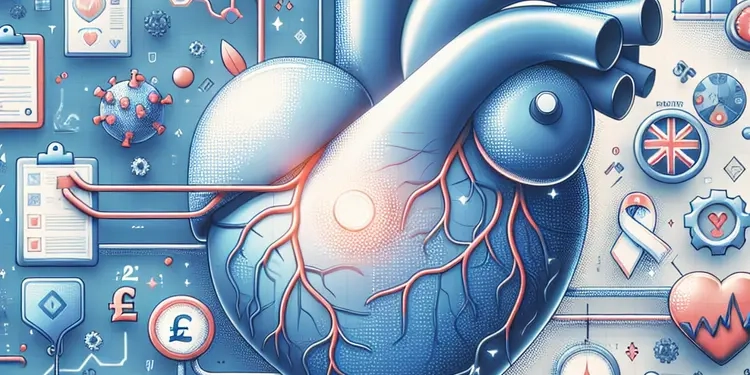
What is heart valve disease?
Relevance: 26%
-
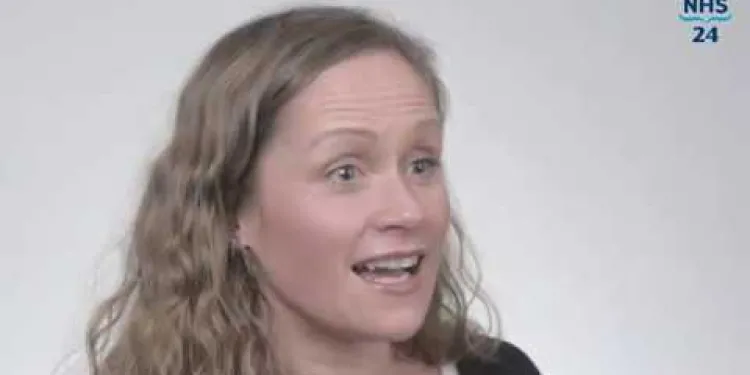
Living Well with Coeliac Disease
Relevance: 26%
-

Is motor neurone disease hereditary?
Relevance: 26%
Parkinson's Disease: Karen's Story
Introduction to Parkinson's Disease
Parkinson's disease is a progressive neurological disorder that affects movement. It develops due to the loss of dopamine-producing brain cells. Symptoms include tremors, stiffness, and slowness of movement. The condition affects around 145,000 people in the UK, with both men and women being equally at risk.Early Symptoms and Diagnosis
Karen, a 58-year-old from Manchester, first noticed a slight tremor in her right hand five years ago. At first, she dismissed it as stress-related, but when the tremor persisted and she started experiencing stiffness and difficulty in her daily tasks, she consulted her GP. Following a series of tests, including a neurologist consultation and a brain imaging scan, she was diagnosed with Parkinson's disease.Managing Daily Life with Parkinson's
Receiving the diagnosis was challenging for Karen, but she decided to face it head-on. She found support through her local Parkinson's UK group, which provided invaluable resources and a sense of community. Karen also worked with her GP and a specialist nurse to develop a medication regimen that helped manage her symptoms effectively. She takes carbidopa-levodopa, which replenishes dopamine levels in the brain.Physical and Occupational Therapy
To maintain her mobility and independence, Karen began attending regular physiotherapy sessions. These sessions focused on strength exercises, balance, and flexibility. She also worked with an occupational therapist to modify her home environment, making daily activities easier and safer. Simple adjustments, like using adaptive utensils and installing handrails, made a significant difference.Mental and Emotional Well-being
Living with a chronic condition can take a toll on mental health. Karen sought counseling and joined a support group specifically for individuals with Parkinson's. The emotional support she received helped her cope with the day-to-day challenges and maintain a positive outlook on life.Continued Research and Hope
Karen remains hopeful about the future, thanks to ongoing research in the field of Parkinson's disease. The NHS, in collaboration with research institutions, continues to explore new treatments and therapies that could potentially slow or even halt the progression of the disease.Conclusion
Karen's story is a testament to the resilience and adaptability required to live with Parkinson's disease. Through medical support, therapy, and a strong network, she continues to manage her condition and lead an active, fulfilling life. Anyone experiencing symptoms or needing support can reach out to Parkinson's UK or consult their GP for guidance and resources.Parkinson's Disease: Karen's Story
What is Parkinson's Disease?
Parkinson's disease is an illness that affects how you move. It happens when certain brain cells stop making a chemical called dopamine. This can cause shaking, muscle stiffness, and moving slowly. About 145,000 people in the UK have Parkinson's. Both men and women can get it.How Karen Found Out She Has Parkinson's
Karen lives in Manchester and is 58 years old. Five years ago, her right hand started shaking a little. At first, she thought it was just stress. But when it didn't stop and she felt stiff and found it hard to do daily things, she went to her doctor. After a few tests, she was told she has Parkinson's disease.How Karen Lives with Parkinson's
Finding out she had Parkinson's was hard for Karen. But she decided to be strong and face it. She joined a group called Parkinson's UK that gives help and lets her meet others like her. Karen's doctor and a nurse helped her find the right medicine, which helps her feel better. She takes a medicine called carbidopa-levodopa that helps her brain.Exercises and Home Help
Karen goes to physiotherapy to keep moving well. She does exercises to stay strong, balanced, and flexible. An occupational therapist helped make her home safer and easier to use. Things like special forks and spoons and putting handrails in her home help a lot.Feelings and Support
Having a long-term illness can be hard on feelings, too. Karen talks to a counselor and joined a special group for people with Parkinson's. This helps her feel supported and stay positive.Looking to the Future
Karen is hopeful because there is a lot of research happening about Parkinson's. The NHS and scientists are trying to find new ways to treat it and maybe stop it from getting worse.What We Can Learn
Karen's story shows how strong people can be living with Parkinson's. With help from doctors, therapy, and friends, she lives a happy and busy life. If you have symptoms or need help, you can contact Parkinson's UK or your doctor for advice.Frequently Asked Questions
What is Parkinson's disease?
Parkinson's disease is a progressive neurological condition that affects movement. Symptoms can include tremors, stiffness, and slowness of movement.
Who is Karen and what is her story?
Karen is a person living with Parkinson's disease. In her story, she shares her experiences to raise awareness and help others understand the disease.
How long has Karen been living with Parkinson's disease?
Karen has been living with Parkinson's disease for seven years when she shared her story.
What were Karen's initial symptoms of Parkinson's disease?
Karen's initial symptoms included a shaking hand, which she initially dismissed as a trapped nerve.
How did Karen seek a diagnosis for her symptoms?
Karen sought medical help after her symptoms persisted, leading to a series of tests that eventually confirmed she had Parkinson's disease.
How has Parkinson's disease affected Karen's daily life?
Parkinson's disease has affected Karen's ability to perform daily tasks, and she requires more time to complete activities due to stiffness and slowness of movement.
What treatments is Karen using to manage her Parkinson's disease?
Karen uses medication which helps manage her symptoms, along with physiotherapy and exercise to maintain her mobility.
Can Parkinson's disease be cured?
Currently, there is no cure for Parkinson's disease, but there are treatments available to help manage the symptoms.
What kind of support does Karen receive?
Karen receives support from her family, friends, healthcare professionals, and Parkinson's UK, a charity that provides information and support for people affected by Parkinson's.
How does Karen stay positive while living with Parkinson’s disease?
Karen stays positive by focusing on what she can do rather than what she can't, staying active, and engaging in activities she enjoys.
What advice does Karen give to others diagnosed with Parkinson’s disease?
Karen advises others to stay informed, seek support, and remain active to manage their symptoms effectively.
How can exercise benefit someone with Parkinson's disease?
Exercise can help maintain mobility, improve balance, and reduce stiffness, contributing to better overall health for individuals with Parkinson's disease.
Are there any resources available for people with Parkinson's disease in the UK?
Yes, organizations like Parkinson's UK offer resources, support groups, and information for people living with Parkinson's disease in the UK.
What kinds of tests are used to diagnose Parkinson's disease?
Diagnosing Parkinson's disease typically involves a neurological examination and may include tests like brain scans to rule out other conditions.
How important is it to have a support network when living with Parkinson's disease?
Having a support network is crucial as it provides emotional support, practical help, and a sense of community, all of which are important for managing life with Parkinson's disease.
What is Parkinson's disease?
Parkinson's disease is an illness that affects the brain. It can make it hard for people to move their bodies the way they want. Sometimes, they might shake or feel stiff.
Here are some ways to help with understanding and learning:
- Use pictures to show what Parkinson's disease is.
- Listen to someone explain it using simple words.
- Talk to a friend or helper if you have questions.
Parkinson's disease is a sickness that gets worse over time and affects how you move. If you have it, you might shake, feel stiff, or move slowly.
Who is Karen and what is her story?
Karen is a person. This is the story about her life.
To understand the story better, you can:
- Read slowly.
- Use a finger to follow each word.
- Ask someone to read with you.
Karen is a person who has Parkinson's disease. She wants to tell her story to help people understand what it's like and to raise awareness about it.
How long has Karen had Parkinson's disease?
This question is asking about the time Karen has had a sickness called Parkinson's disease.
To help understand better, you can:
- Use pictures or drawings.
- Ask someone to read it aloud with you.
Karen has had Parkinson's disease for seven years. She told her story about it.
What signs did Karen first have of Parkinson's disease?
Karen noticed some changes that can mean Parkinson's disease:
- Shaking in her hands or fingers
- Moving more slowly than before
- Feeling stiff or having tight muscles
- Her balance was not steady
If you have trouble understanding, a friend or carer can help read it with you.
Try using tools like speech-to-text apps that read aloud.
Karen's hand was shaking. She thought she just had a pinched nerve.
How did Karen find out what was wrong with her?
Karen went to see a doctor because she was not feeling well. The doctor did some tests. The tests showed that Karen has Parkinson's disease.
How does Parkinson's disease change Karen's day-to-day life?
Karen has a sickness called Parkinson's disease. It makes it hard for her to do everyday things. She takes longer because her body is stiff and moves slowly.
What is Karen doing to help with her Parkinson's disease?
Karen takes medicine to help with her symptoms. She also does exercises and sees a physiotherapist to help her move better.
Can Parkinson's disease be cured?
Parkinson's disease is a sickness that affects the brain. Right now, doctors cannot make it go away completely. But there are medicines and treatments that can help people feel better.
If you want more help, you can:
- Ask a doctor or nurse about the treatments.
- Talk to someone who knows a lot about Parkinson's.
- Visit websites that explain things in a simple way.
There is no cure for Parkinson's disease right now. But there are things doctors can do to help you feel better.
How does Karen get help?
Karen gets help from her family and friends. Doctors and nurses also help her. There is a charity called Parkinson's UK. They give information and help to people with Parkinson's.
How does Karen stay happy while living with Parkinson’s disease?
Karen has Parkinson’s disease. This is a sickness that makes it hard for her to move. But Karen still finds ways to stay happy. Here are some ways she does it:
- Reading Books: Karen likes reading books that make her smile and feel good.
- Listening to Music: Music makes Karen feel happy. She listens to her favorite songs every day.
- Being with Friends: Karen spends time with friends who make her laugh and feel loved.
- Talking to a Counselor: Karen talks to someone who helps her feel better about things.
- Exercise: Moving her body gently helps Karen feel strong.
It's important for Karen to use things that help her. Here are some ideas:
- Writing Notes: Karen uses notes to remember important things.
- Relaxation Music: Listening to soft music helps Karen relax.
Karen tries new things to stay happy every day. This helps her feel good.
Karen keeps a happy mind by thinking about what she can do instead of what she can't. She likes to move her body and do things she loves.
What tips does Karen have for people who find out they have Parkinson’s disease?
If you want, you could use a device to read this out loud.
Draw pictures to help understand the information better.
Ask a friend or family to help you read together.
Karen says you should learn about your health, ask for help when needed, and keep moving to feel better.
How can exercise help someone with Parkinson's disease?
Exercise is good for people with Parkinson's disease. Here is how it helps:
- Move Better: Exercise can help you move more easily. It can make your muscles stronger.
- Balance: Exercise helps you balance better. This can stop you from falling.
- Feel Good: Doing exercise can make you feel happier.
- Sleep Well: When you exercise, you might sleep better at night.
Here are some tips:
- Start slowly. Begin with easy exercises like walking.
- Try to exercise with a friend. It can be more fun.
- Speak to a doctor before starting any new exercise.
Exercise can help you move better, stay balanced, and feel less stiff. This is good for people with Parkinson's disease.
Try to do a little exercise every day. Walking, stretching, or dancing can help. Ask someone to join you for fun and support.
Using videos or apps can make it easier to follow along at home.
Can people with Parkinson's disease in the UK get help?
Here is some easy information to help you: - Parkinson's UK has a website and a helpline. - Doctors and nurses know about Parkinson's and can help too. - There are groups where people with Parkinson's can meet and talk. - You can call or email Parkinson's UK for more help. Using the internet, asking doctors, and joining groups can make it easier to get help.Yes, a group called Parkinson's UK helps people in the UK who have Parkinson's disease. They give support, share information, and have groups you can join.
How do doctors find out if someone has Parkinson's disease?
Doctors use tests and checks to see if someone has Parkinson's disease. They might ask about feelings and look at how a person moves. Sometimes, they might use special pictures of the brain. Talking to a doctor and asking questions can help. Using pictures or apps to learn more can also be helpful.
To find out if someone has Parkinson's disease, doctors usually check how the brain and nerves are working. They might also do special pictures of the brain, called brain scans, to make sure it is not something else.
Why is it important to have people who help you when you have Parkinson's?
When you have Parkinson's disease, it is very helpful to have family, friends, or groups to support you. These people can make you feel better and help you with daily activities. They can also provide emotional support and help you stay positive.
You might use tools like calendars or reminder apps to keep track of medicines or appointments. Joining a group or club with others who have Parkinson's can be really nice because you can share tips and experiences.
Having friends and family to help you is very important. They can make you feel better, help you with things you need to do, and make you feel like you belong. This is really helpful when you are living with Parkinson's disease.
Useful Links
This website offers general information and is not a substitute for professional advice.
Always seek guidance from qualified professionals.
If you have any medical concerns or need urgent help, contact a healthcare professional or emergency services immediately.
Some of this content was generated with AI assistance. We’ve done our best to keep it accurate, helpful, and human-friendly.
- Ergsy carfully checks the information in the videos we provide here.
- Videos shown by Youtube after a video has completed, have NOT been reviewed by ERGSY.
- To view, click the arrow in centre of video.
- Most of the videos you find here will have subtitles and/or closed captions available.
- You may need to turn these on, and choose your preferred language.
- Go to the video you'd like to watch.
- If closed captions (CC) are available, settings will be visible on the bottom right of the video player.
- To turn on Captions, click settings .
- To turn off Captions, click settings again.
More Items From Ergsy search
-

What is Parkinson's disease?
Relevance: 100%
-

Parkinson's disease: Karen's story | NHS
Relevance: 91%
-

Parkinson’s Disease and NHS RightCare: Long Term Condition Scenario
Relevance: 82%
-

Coeliac disease
Relevance: 29%
-

Coeliac Disease: Session 1: What is Coeliac Disease?
Relevance: 29%
-

How does Huntington's disease affect movement?
Relevance: 28%
-

What is Lyme Disease?
Relevance: 28%
-

Is Huntington's disease fatal?
Relevance: 28%
-

Liver disease | NHS
Relevance: 28%
-

Is Crohn's disease contagious?
Relevance: 28%
-

Causes of coeliac disease
Relevance: 28%
-

What is Huntington's disease?
Relevance: 28%
-

Lyme disease: What is it?
Relevance: 28%
-

Is there a cure for Crohn's disease?
Relevance: 28%
-

What is Mitochondrial disease?
Relevance: 28%
-

Is there a vaccine for Lyme disease?
Relevance: 28%
-

Is flesh-eating disease contagious?
Relevance: 27%
-

Symptoms of coeliac disease
Relevance: 27%
-

Do UK mosquitoes carry diseases?
Relevance: 27%
-

What is Alzheimer's disease?
Relevance: 27%
-

Do spiders in the UK carry diseases?
Relevance: 27%
-

What causes Crohn's disease?
Relevance: 27%
-

What causes Huntington's disease?
Relevance: 26%
-

How is Crohn's disease diagnosed?
Relevance: 26%
-

Can Lyme disease be treated?
Relevance: 26%
-

How is Lyme disease transmitted?
Relevance: 26%
-

Can Huntington's disease be prevented?
Relevance: 26%
-

NHSGGC - What is Coeliac Disease?
Relevance: 26%
-

What is sickle cell disease?
Relevance: 26%
-

What is a flesh-eating disease?
Relevance: 26%
-

What are the symptoms of Huntington's disease?
Relevance: 26%
-

How is Huntington's disease diagnosed?
Relevance: 26%
-

Can Huntington's disease be cured?
Relevance: 26%
-

How common is Alzheimer's disease in the UK?
Relevance: 26%
-

Introduction to Sickle cell disease
Relevance: 26%
-

Is surgery necessary for Crohn's disease?
Relevance: 26%
-

What is a flesh eating disease?
Relevance: 26%
-

What is heart valve disease?
Relevance: 26%
-

Living Well with Coeliac Disease
Relevance: 26%
-

Is motor neurone disease hereditary?
Relevance: 26%


